The fact of the most famous haiku poem in Japan.
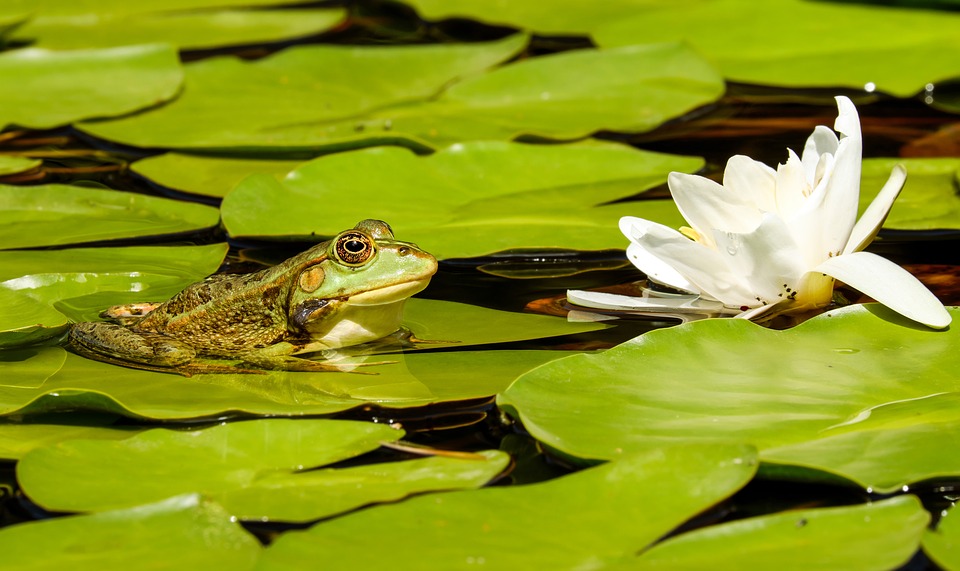
The most famous haiku poem of the most famous haiku poet in Japan.
古池や 蛙飛び込む 水の音
The old pond
A frog leaps in.
Sound of the water.
It’s a very simple poem. Matsuo Basho (1644-1694) composed it at a haiku gathering in 1686 when he was 43 years old.
If you pronounce the kanji and hiragana, it’s in the following way.
Furuike ya/ Kawazu tobikomu/ Mizu no oto
Do you know the syllable and format of haiku?
Haiku’s format and rules in English and Japanese
It would be a little difficult to say correctly. The tip is to say without intonating as much as possible. The silence is one of the important elements of the poem.
The meaning of "frog", "old pond" and "sound"
Most of the people, even Japanese, think the poem shows that Matsuo Basho actually experienced and moved to the scene. However, he didn’t see the scene even the frog. The haiku gathering was held at his hermitage Basho-an with a pond. Haiku poets decided a theme at a haiku gathering and it was “frog” at the day. So, Basho had to put the word into a poem.
“Frog” is a spring season word.
Related Post
Spring haiku poem examples by Matsuo Basho
Since there was the pond at the hermitage, he possibly heard the sound of the water. But speaking about “a pound”, he didn’t see it when he composed the poem. According to the record of his disciple Shiko, Basho came up with the words of “A frog leaps in/ And the sound of the water.” before “An old pond”. After polishing, he decided to use “An old pond”.
He created the famous haiku poem in the hermitage and didn’t see the pond. The pond of the poem isn’t reality even there was nearby from him. He made the world of silence which broken by a small creature in his mind.
Furthermore, Basho made a nobel attempt to compose about a frog. Previously, all of the Japanese poets use the word aiming at the effect of the sound of the amphibian’s croaking. It was the first time that the poem which focused on the sound of a splashing that a frog made. The tranquil haiku poem is one of the most “Sabi” poems by Matsuo Basho.
Related Posts
If you want to hear Basho’s haiku in Japanese, please subscribe for unlimited posts.
30 Matsuo Basho’s haiku poems including the best10 with Japanese voice (only subscriber)
Sample (Old Pond haiku poem)
More Basho’s four seasons haiku poems
Other famous Japanese poets
Related posts:
 Best 10 famous Matsuo Basho’s haiku poems in English and Japanese
Best 10 famous Matsuo Basho’s haiku poems in English and Japanese
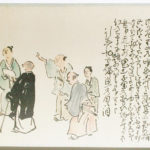 The Narrow Road to the Deep North by Matsuo Basho
The Narrow Road to the Deep North by Matsuo Basho
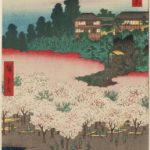 Spring haiku poem examples by Matsuo Basho
Spring haiku poem examples by Matsuo Basho
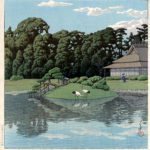 Haiku poems of summer. The examples by Matsuo Basho
Haiku poems of summer. The examples by Matsuo Basho
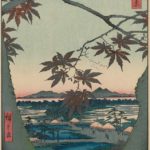 Haiku poems of autumn. The examples by Matsuo Basho
Haiku poems of autumn. The examples by Matsuo Basho
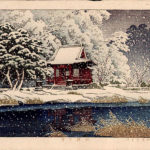 Winter haiku poems, Matsuo Basho’s examples
Winter haiku poems, Matsuo Basho’s examples
